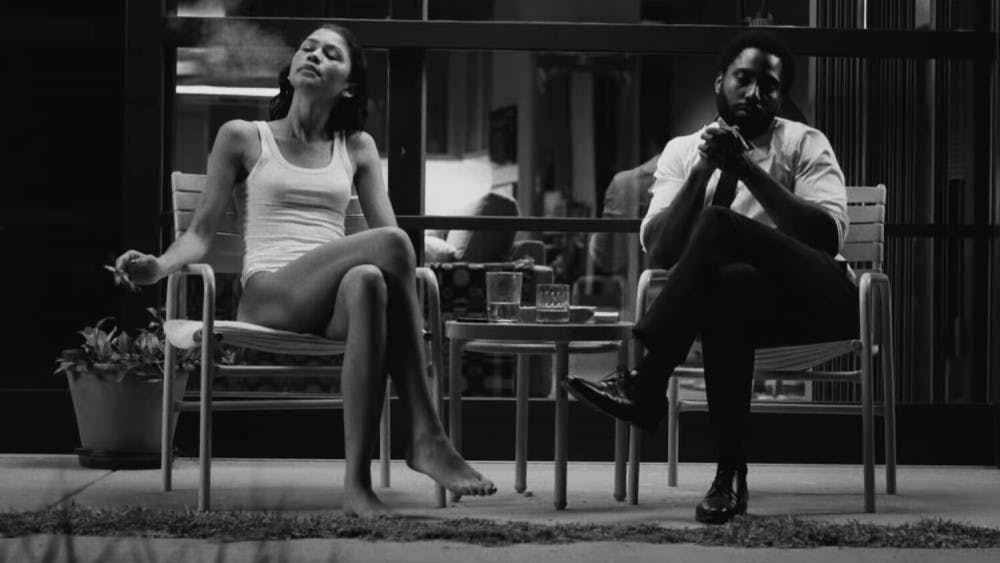“Malcolm & Marie” should have been applauded for its insightful commentary on power and relationships, but the film falls victim to the trend of diversity box-checking in Hollywood.
At its core, “Malcolm & Marie” is about the breakdown of relationships — a timely release made more significant by its relevance to a year starved of human connections.
The film begins with filmmaker Malcolm (John David Washington) returning from a successful first release of his work. The celebration quickly turns into an exhausting fight with his partner Marie (Zendaya) that lasts late into the night.
The film is unafraid of opening up issues of toxic, abusive relationships while also touching on issues of race, gender and drug abuse. The couple’s arguments drag on in the empty confines of a glassy mansion, not unlike the never-ending lockdowns and isolation many experienced during the pandemic.
“Malcolm & Marie” points to many (perhaps too many) problems without offering resolutions. Yet the acting, the set and the use of black and white film are stunning. Zendaya makes an impression as a young woman from a broken family with a history of drug issues who is currently struggling to find her position in a relationship with a soon-to-be-successful filmmaker.
I cannot help but feel that the snippets of commentary on race, gender and drugs overwhelm the main themes of the film. “Malcolm & Marie” brings up these issues without committing to exploring them in depth, thereby simply reinforcing common stereotypes of women, people of color and drug abuse victims.
It almost feels like an act of box-checking.
African American leads: check. A Black female protagonist who probably has the same — if not more – lines than her male counterpart: double check. A female protagonist who is not only a person of color but also has a background of poverty and drug abuse: check. If only the film could find space for a character who is queer, then it would be the epitome of politically correct filmmaking.
“Malcolm & Marie” spreads itself thin over too many issues.
Tokenization and overrepresentation are not uncommon in recent film releases, as the film industry attempts to rewrite its relationship with representation and inclusion, as well as capitalize on the recent racial equity movements: “all-Asian cast,” “first female Asian director,” “majority POC cast”. It seems like Hollywood found the golden goose of portraying equity.
But representation is not just an array of skin colors, body types and genders flung around like taglines from a sales ad. The point of diversity is to understand differences and acknowledge, empathize with and celebrate our common humanity despite these differences.
Not all representation is good, and no representation would be better than superficial, inaccurate representation.
Over-representation in an attempt to check boxes — resulting in almost inevitable shallowness — will likely perpetuate stereotypes. In the film, Marie’s racial identity and her history of drug abuse and financial struggle are exploited as tools to explain her insecurities. The work struggles to strengthen our connection to her as a character because they were deprived of details and context.
Over-ambitious in its attempt to check boxes, “Malcolm & Marie” made sweeping generalizations about these marginalized groups. Filmmakers and artists who genuinely wish to promote diversity and inclusion ought to anchor their narratives in the complexities of the individual without trying to speak for an entire demographic.

Florence Wu '22 is the multimedia editor specializing in photojournalism. She enjoys photography as a way of connecting with others, as well as recording special events and moments in her personal life. She is inspired by the works of Robert Frank, Joel Sternfeld, Alec Soth, Teju Cole, and Gregory Halpern. This year, she will be working on a photojournalism project on the lives of workers at the college and town of Middlebury. Feel free to contact her via email for photo, video or podcast ideas.




